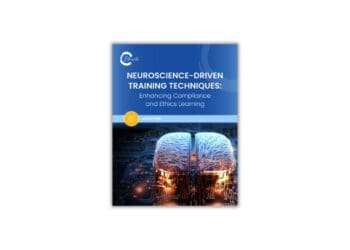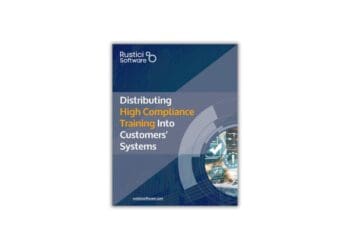CCI columnist Mary Shirley shares some of the lessons she learned during this year’s national compliance conference in Washington, D.C.
About 500 risk, ethics and compliance professionals gathered May 15-17 in Washington, D.C. for the annual Compliance Week National Conference, always a fertile source of ideas for compliance practitioners and programs.
In particular, three things stood out the most to me at this year’s event.
1. How we sabotage ourselves with our mobile devices
Two of the most popular speakers of the conference were Sahar Yousef, a cognitive neuroscientist, and Lucas Miller, a human performance researcher. The two spoke on neuroscience in a general session, and I was fortunate to attend a think tank with these two experts, who shared behavioral science insights and tips.
The most startling for me was just how bad our phones are for us. Don’t get me wrong, I knew they were problematic, and I was already pretty sure I am addicted to my iPhone, but I was unaware of just how dire the situation actually is.
In the general session, Sahar and Miller shared with us that our brain power is negatively affected by the proximity and accessibility of our mobile phones. There is a massive decrease in your cognitive capabilities when your phone is on your desk, compared with if it is on the desk next to you. Shockingly — and I will ask you to brace yourselves for this — the speakers built on this horrifying information by saying that if you have your phone present when in the presence of others, they will judge you to be less trustworthy and less attractive. Accordingly, my phone will never see the light of day when in company again!
New DOJ Guidance Charts a Way Forward on Ephemeral Messaging
New guidance from the DOJ on what makes an effective compliance program should be mandatory reading for every corporate integrity professional. Living Your Best Compliance life columnist Mary Shirley shares her thoughts on upshots of the new guidance.
Read moreDetails2. We don’t have to ban ephemeral messaging platforms
Billy Jacobson, a partner at Allen & Overy, thoughtfully interviewed Glenn Leon, chief of the DOJ’s Fraud Section.
Leon emphasized a couple of important points regarding recent guidance on messaging apps. First, there is no expectation from the DOJ that ephemeral messaging platforms be banned. There is, however, an expectation that with regard to company policies addressing messaging platforms, they are actively checked/reviewed by staff and that training must be given on the policy at a proportionate frequency. This makes sense and was reassuring, though we did not hear about expectations in regard to the enforcement of the policy, which from my conversations with peers is what many are still struggling with. Hopefully, the further guidance we can expect to receive in due course will address the enforcement angle. It was heartening to hear Leon acknowledge that this is complicated.
Secondly, Leon made it clear that the DOJ is not suggesting that companies infringe employees’ privacy — positive validation, as I know the data privacy angle has been weighing on the minds of many practitioners.
3. A rose by another name might just smell sweeter
Finally, my last hot tip comes from legal, compliance and ESG triple threat Kim Yapchai, who got audience heads nodding with this simple but highly resonating tip about reframing ethics and compliance training. To paraphrase: Don’t call it ethics and compliance training. Call it leadership training. Nobody thinks they’re the ones who need ethics training; it’s the person next to them.
I’d also like to shout-out my dear friend Margarita Derelanko of Ivy Rehab for being shortlisted for the Innovator of the Year in the Compliance Week Excellence in Compliance awards, fantastic effort! The Excellence in Compliance awards are an opportunity to recognize and celebrate outstanding achievements in the field, look out for the chance to nominate your deserving colleagues for the 2024 event.














